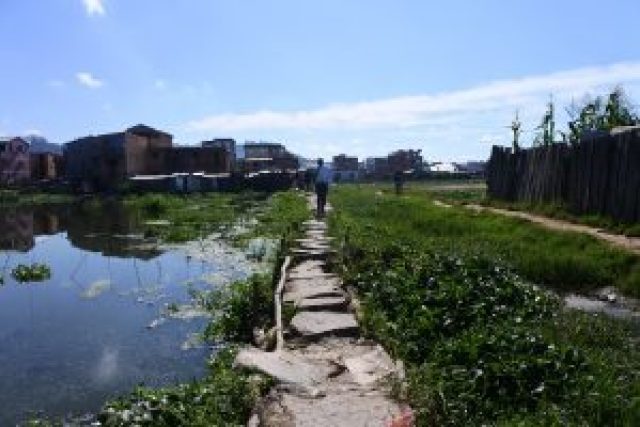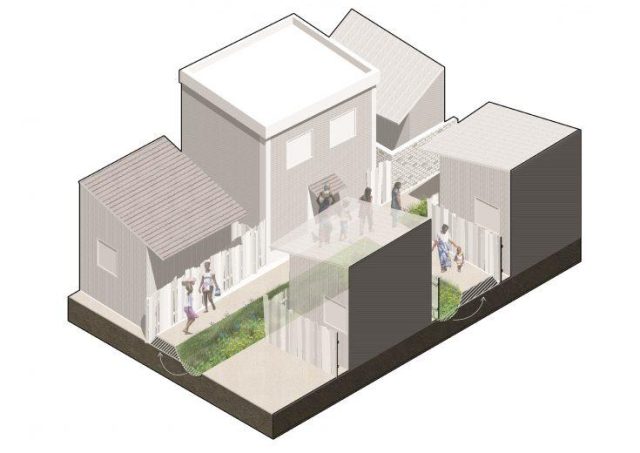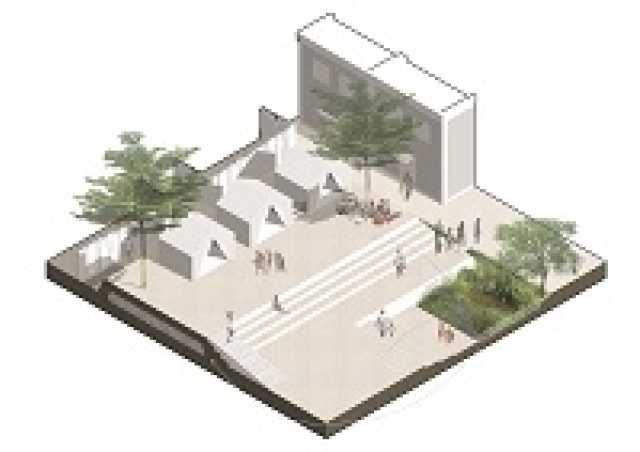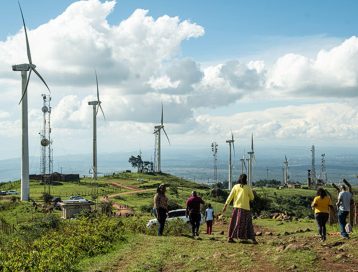New concepts to combine Nature-based Solutions with evacuation during floods
Antananarivo, the capital of Madagascar and its most populated city, faces several urban challenges. Water-related challenges, such as urban floods and water pollution, are especially relevant, since they are interconnected and have a high social, economic and ecological impact. Moreover, they commonly affect some of the most vulnerable communities in the city, namely the inhabitants of informal settlements. Not only they are often the most exposed to hazards, because they settle in the floodplains, but they also have limited resources to cope when a disaster hit.
Nature Based Solutions (NbS) present an opportunity to address these challenges in a resilient and inclusive way. They are versatile, can be implemented in different scales and contexts, with limited resources, and bring a series of co-benefits that can be appealing for vulnerable populations. Furthermore, during a disaster, they can potentially contribute to an efficient and safe evacuation and refuge for affected communities.

First results
The starting point of the project was a comprehensive review of good practices worldwide regarding the integration of NbS and disaster evacuation. In the diagnostic phase we focus on the identification of existing challenges, the understanding of the water system in connection to pluvial and fluvial flooding, and the definition of potential interventions sites and measures.
Measures were structural (NbS and others) and non-structural. Findings from the diagnostic point towards the need to produce a strategic, versatile, and multiscale intervention that both increases the storage capacity and the discharge capacity of the area. The scenario-building phase focuses on the exploration of inclusive evacuation routes and the development of a flood resilience strategy that integrates NbS and disaster evacuation.
The strategy focuses on a shortlist of intervention sites that were representative of a larger urban context, to promote its future upscaling within the metropolitan area of Antananarivo.
Stakeholder engagement activities are a fundamental component of the project since its beginning. It has worked as means of building local capacities, validating project results, and raising awareness regarding NbS and disaster evacuation and refuge.


Pre-feasibility
Two specific sites and respective measures are being assessed in a pre-feasibility study. As part of this phase, technical design considerations for implementation are developed, along with maintenance, communication and monitoring strategies.
The project was lead by Deltares and finished in December 2020. Our partners were Royal HaskoningDHV (South Africa), BoschSlabbers and Evolutis. It is part of a larger initiative called PRODUIR (Integrated Urban Development and Resilience Project), funded by the World Bank, supported by the Government of Madagascar, and being implemented between 2018 and 2023.




